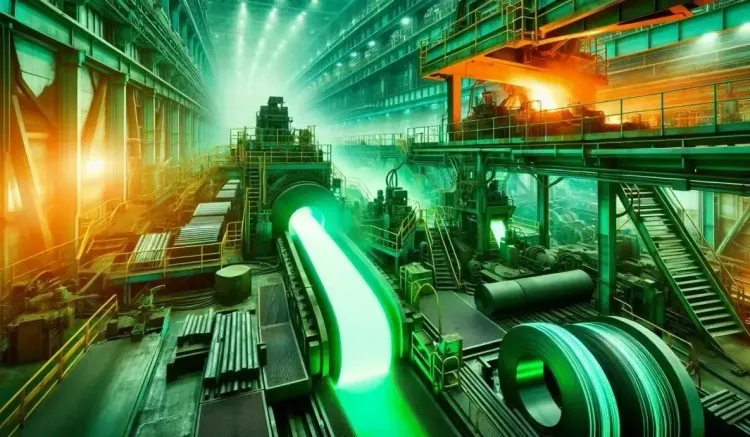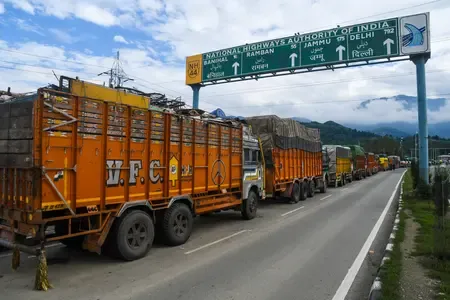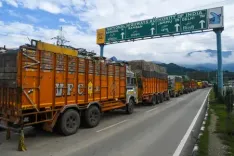Government Unveils ₹15,000 Crore Initiative to Assist Steel Sector in Lowering Carbon Footprint

New Delhi, Dec 30 (NationPress) The government is set to implement the ‘Green Steel Mission’ with a projected budget of ₹15,000 crore to assist the steel industry in cutting down carbon emissions and advancing towards the Net Zero Target, as per the year-end review published by the Ministry of Steel on Monday.
This mission encompasses a Production Linked Incentive (PLI) Scheme for Green Steel, incentives promoting the use of renewable energy, and mandates for government entities to procure Green Steel, thereby enhancing the industry’s environmental sustainability.
The National Green Hydrogen Mission, led by the Ministry of New and Renewable Energy, incorporates the steel sector into the larger objective of producing and utilizing green hydrogen, which contributes to the decarbonization of steel production.
A report titled 'Greening the Steel Sector in India,' based on recommendations from 14 task forces established by the Ministry of Steel, was unveiled in September this year. This was followed by the introduction of the Taxonomy of Green Steel for India, earlier in December, which outlines the criteria for green steel rating. Additionally, the Steel Scrap Recycling Policy supports these initiatives by increasing the availability of domestically sourced scrap, thereby promoting resource efficiency, as stated in the review.
The Taxonomy for Green Steel was released by the Ministry on December 12 to establish standards for defining and categorizing low-emission steel, facilitating the green transition within the steel industry. It offers a framework for green steel production, market creation, and securing financial assistance.
The Ministry of New and Renewable Energy has also initiated the National Green Hydrogen Mission to promote the production and use of green hydrogen. The steel sector is a key stakeholder in this mission, receiving budgetary support of ₹455 crore to implement pilot projects in the iron and steel sector through to the financial year 2029-30.
As part of this mission, the Ministry of Steel has allocated two pilot projects aimed at producing Direct Reduced Iron (DRI) using 100% hydrogen in vertical shafts, along with one pilot project that utilizes hydrogen in existing blast furnaces to decrease coal and coke consumption, initiated in September this year. Additional pilot projects are being considered for injecting green hydrogen into existing DRI-making units to partially replace natural gas.
The government has also rolled out a Production Linked Incentive (PLI) scheme as a pivotal strategy to attract investment and enhance domestic manufacturing of 'Specialty Steel,' while also reducing imports. Participating firms have pledged an investment of ₹27,106 crore, promising direct employment for 14,760 individuals and an estimated production of 7.90 million tonnes of 'Specialty Steel' as identified in the scheme. By October 2024, companies have already invested ₹17,581 crore and created over 8,660 jobs.
The review further emphasizes that the government is developing a comprehensive global strategy to establish India as a leader in the steel industry, capable of fulfilling domestic requirements while also becoming a major exporter. A working group has been formed to devise India's Steel Global Outlook Strategy, focusing on four key areas: Raw Materials, Investments, Technologies, and Steel Exports. After thorough consultations with stakeholders, a strategy paper will be created identifying specific areas for collaboration and an action plan for priority countries.
Efforts are also underway to establish standards for steel consumed domestically and integrate them into the Quality Control Order (QCO). This standardization process aims to set uniform specifications, testing methods, and manufacturing processes for steel production, ensuring consistent quality across various manufacturers. All steel produced must comply with standards set by BIS, and both domestic and foreign manufacturers must obtain a BIS license for production. By enforcing the QCO, the government ensures the supply of only quality products, as highlighted in the review.










